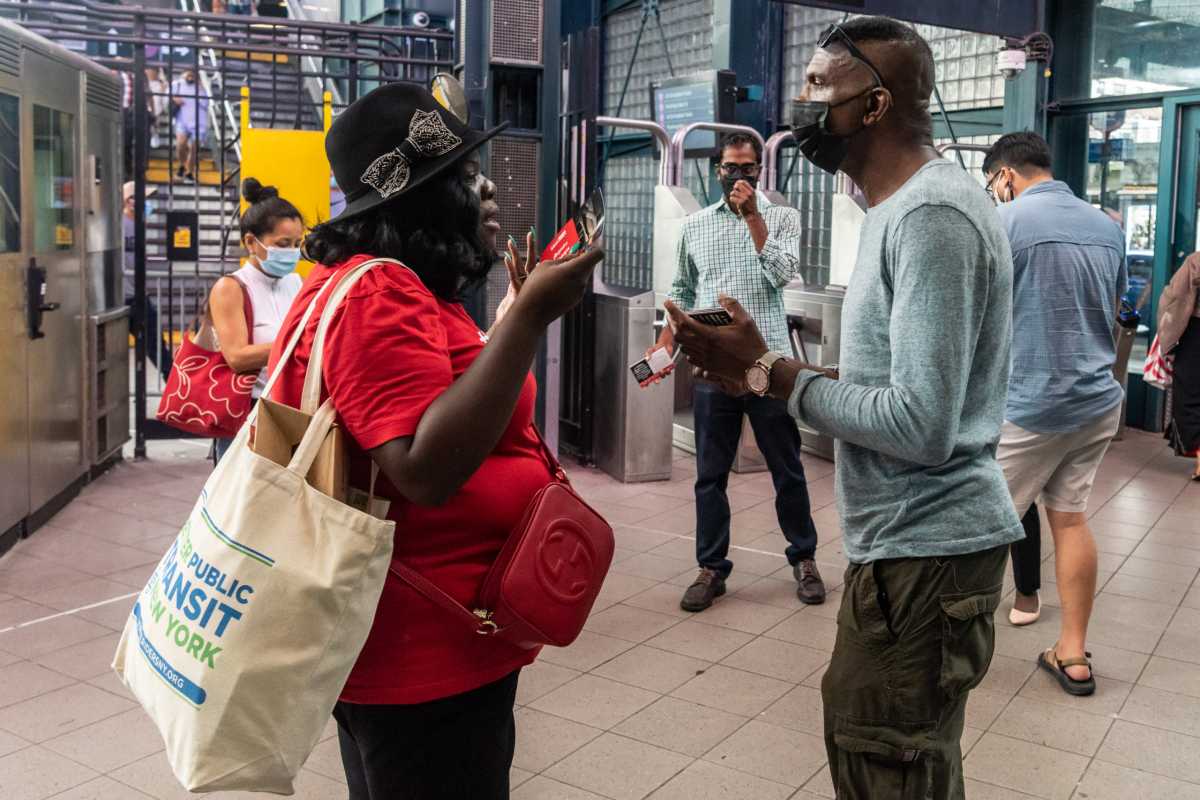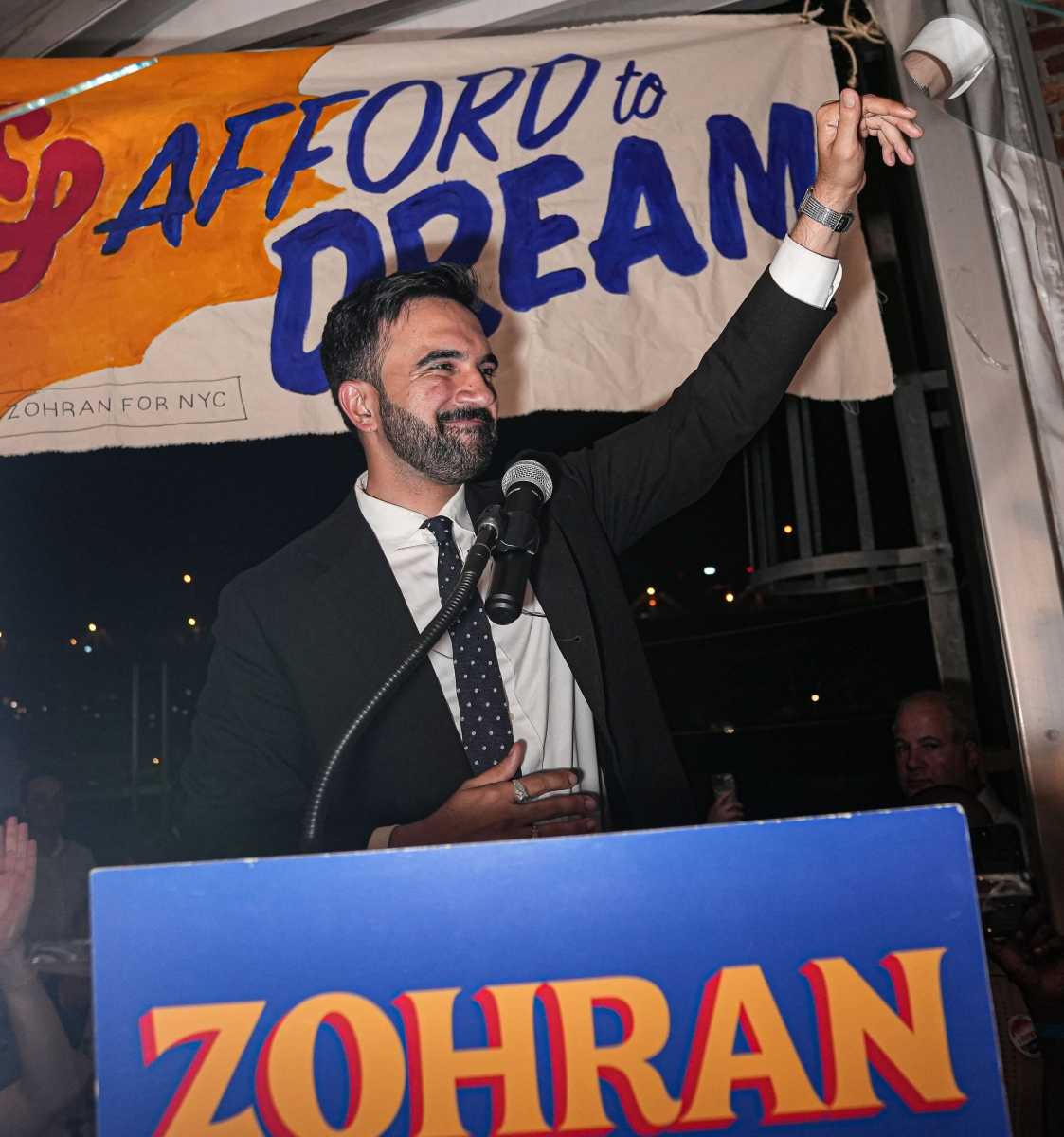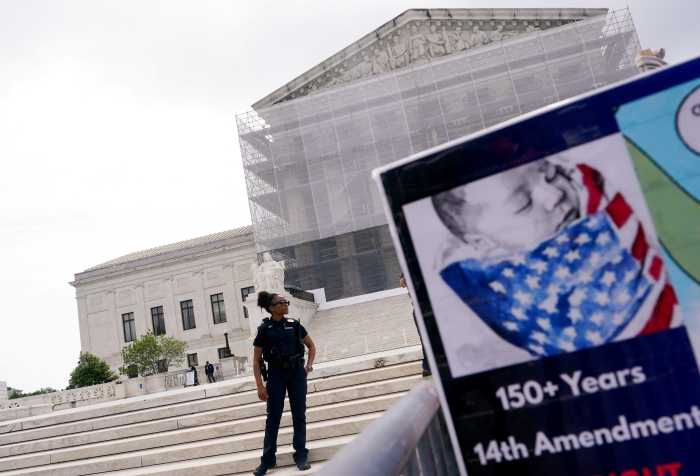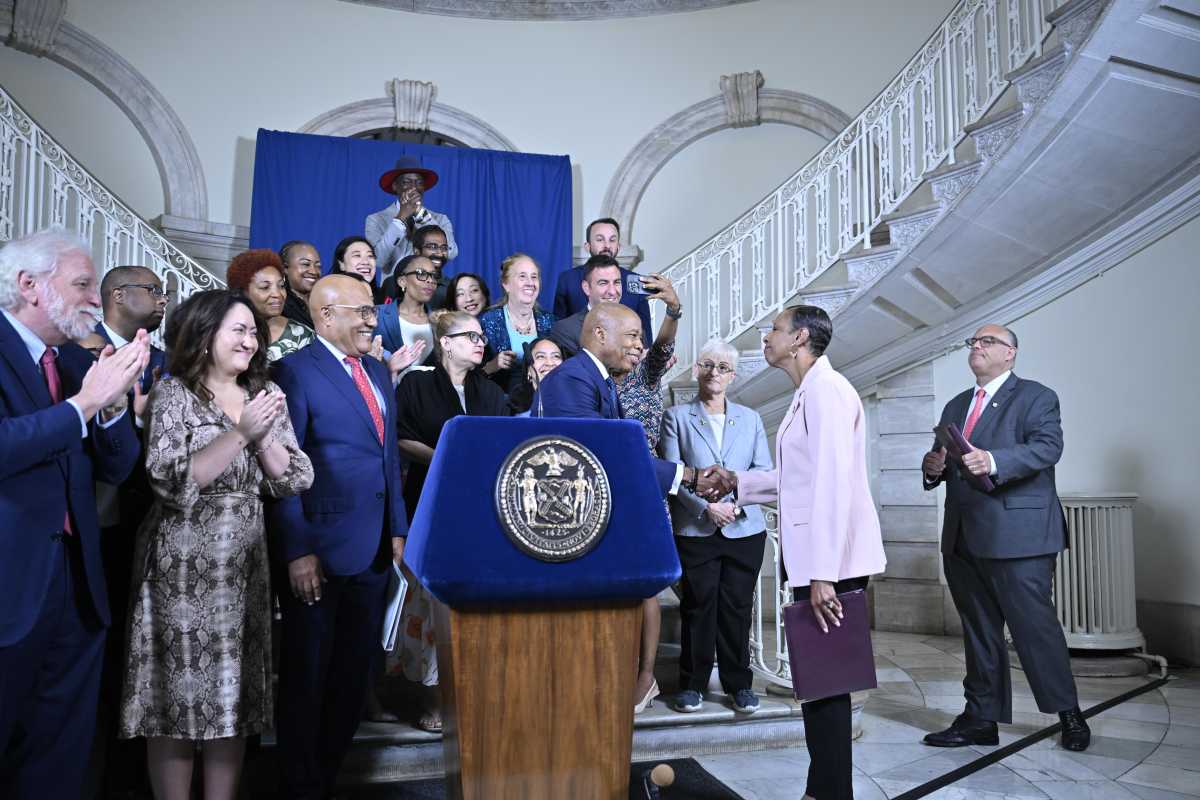Members of Riders Alliance and subway riders, along with Queens City Council candidates, canvassed the Jackson Heights-Roosevelt Avenue subway station on Wednesday, Sept. 1 in Jackson Heights, where they distributed postcards to straphangers and urged them to call their congressional representatives and demand that Congress pass H.R. 3744 – Stronger Communities through Better Transit Act during the current infrastructure legislation.
The canvassing action came at the heel of the recent subway “mishap” when a power problem shut down subway signal signs on several lines Sunday night, Aug. 29, stopping trains in their tracks and forcing the evacuation of a few hundred subway riders with the help of the FDNY and MTA. And just Wednesday night, unprecedented rainfalls proved how vulnerable the outdated subway infrastructure is.
Outside one of Queens’s major transit hubs serving the E, F, M, R, and 7 lines, Riders Alliance representative urged Queens/Bronx Congresswoman Alexandria Ocasio-Cortez (AOC) to throw her full support behind the infrastructure bill and stop the looming MTA fare hikes and service cuts that would reverse New York’s recovery and strand essential workers.
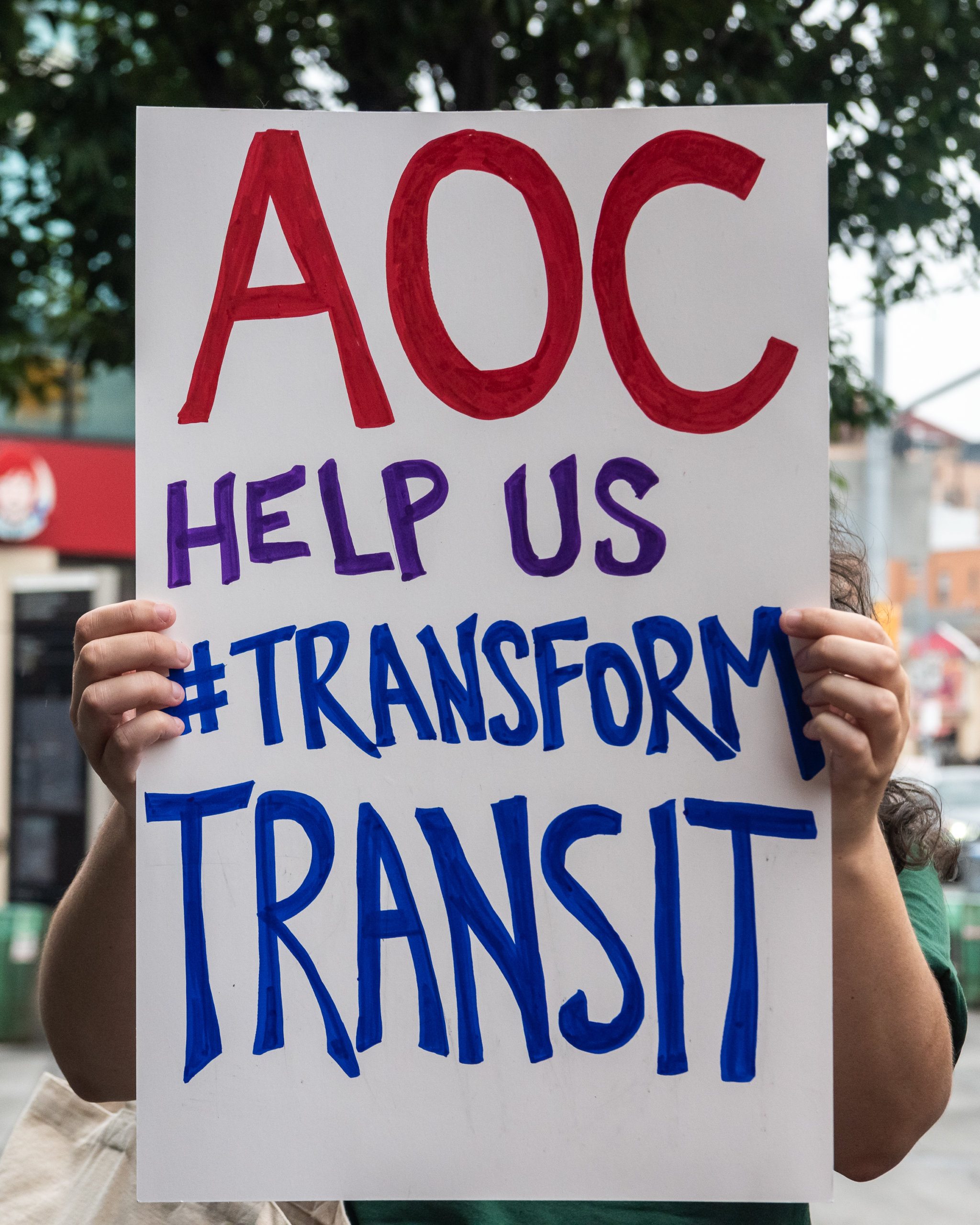
Danna Dennis, senior organizer of Riders Alliance, a grassroots organization that fights for better transit options, called for a more reliable service, an updated signal system and improved accessibility —only around 25 percent of the 473 subway stations are wheelchair accessible — and demanded that Washington allocate $20 billion to the MTA operating fund and $3 billion annually to the upgrading fund.
“The reason why we came here to Queens this morning, here in AOC’s district, is because she’s someone who’s really been a champion for transit over the last couple of years,” Dennis explained. “We thought it was important to speak to her constituents, specifically.”
A spokesperson for Congresswoman Ocasio-Cortez’s office noted that the House member supports the bill. She became a co-sponsor as of Sept. 3.
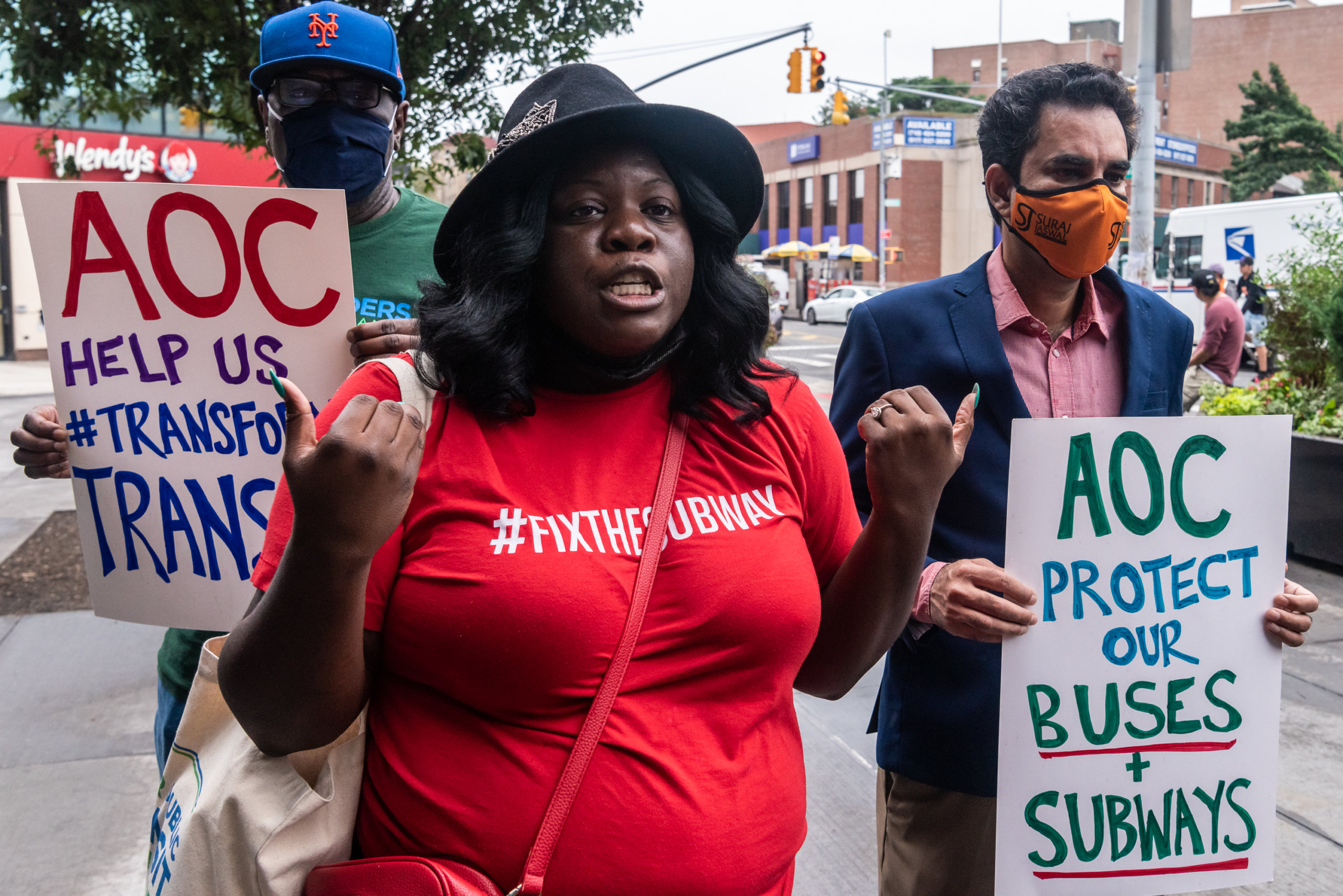
Dennis went on to say that New Yorkers deserved a system that works for subway passengers. She also addressed potential cuts of transit workers “who have stayed with us during the pandemic.”
“They are essential workers who have risked their lives throughout the time when many of us have been privileged to stay at home,” Dennis said. “These are the folks that got up, and they carried the other essential workers, our nurses, our doctors, folks who were stocking our grocery stores. These are the folks who carried those folks along.”
Libertarian candidate for City Council, Suraj Jaswal, agreed that the subway’s signal system was a “disaster” and that even though the MTA has been trying to improve it for years, it’s still causing many delays. He also addressed the lack of accessibility for persons with disabilities.
“I have friends who are disabled and who complain regularly, but and nothing gets done,” Jawal shared. “So, we need a lot of funding to make sure all operations are running smoothly. We are not here to criticize or play partisan politics. We just respectfully and humbly want to draw AOC’s attention to this cause and give it a priority.”
Shekar Krishnan, Democratic candidate for New York City Council in Jackson Heights, said the pandemic revealed that areas like Jackson Heights and Elmhurst, the epicenter of the COVID-19 pandemic and home to many essential workers, need more infrastructure investment.
He pointed out that lead paint was peeling off the 7 Line for a long time and that many subway stations aren’t accessible for individuals with disabilities or parents with small children.
“I, myself, know — having carried up the stroller of my two kids on the 82nd Street subway stop — just how difficult it is to navigate,” Krishnan said. “And that’s true for many communities like mine, in New York City.”
He called on federal representatives to work with state and city leaders to ensure that New York City receives the funds the city needs to repair and invest in the subway system, especially in underserved communities.
“This is an issue of transportation equity, it’s an issue of climate justice, and it’s an issue of racial equity, too,” Krishnan said. “It is no coincidence that neighborhoods like mine that were at the center of this pandemic are the same ones that suffer from some of the biggest transportation problems in this city.”
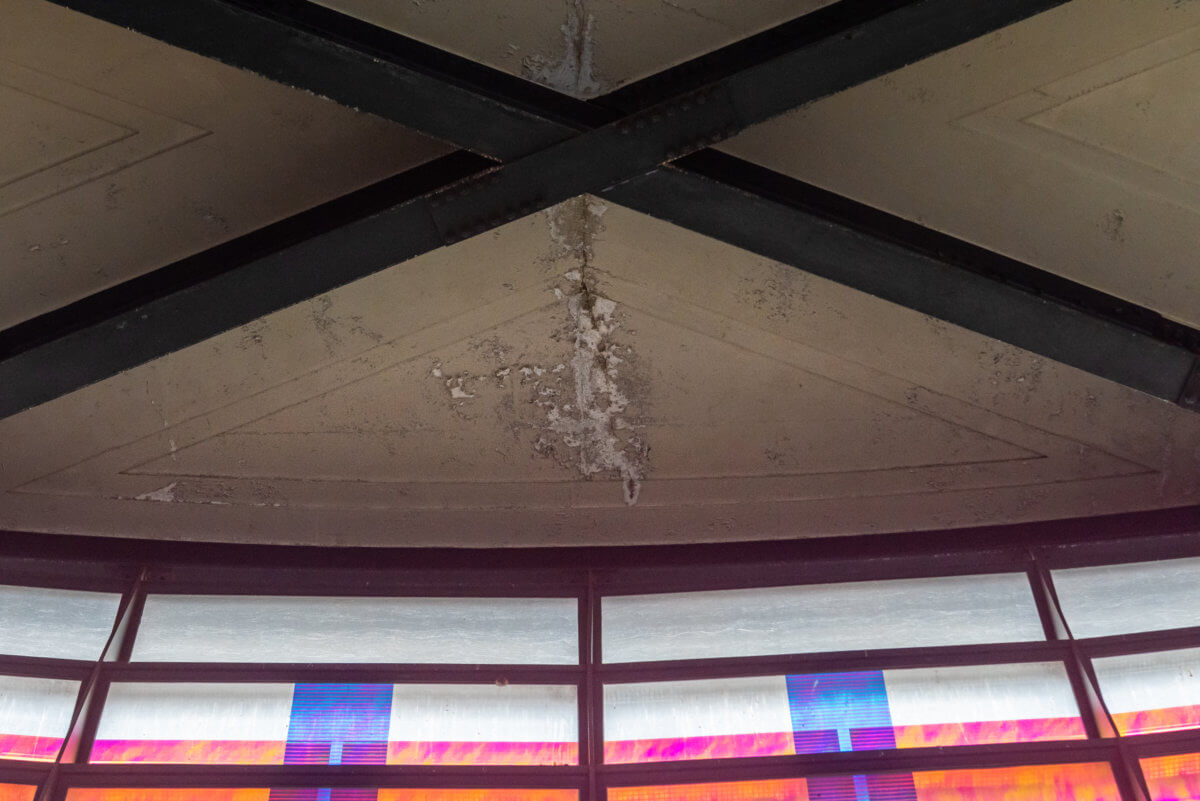
This story was updated on Tuesday, Sept. 7 at 12:30 p.m.

